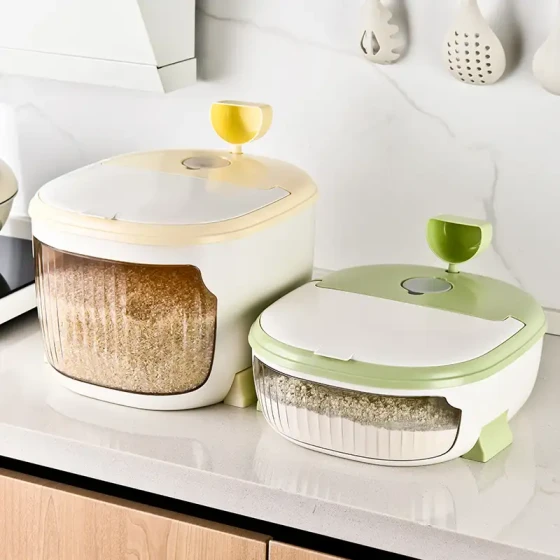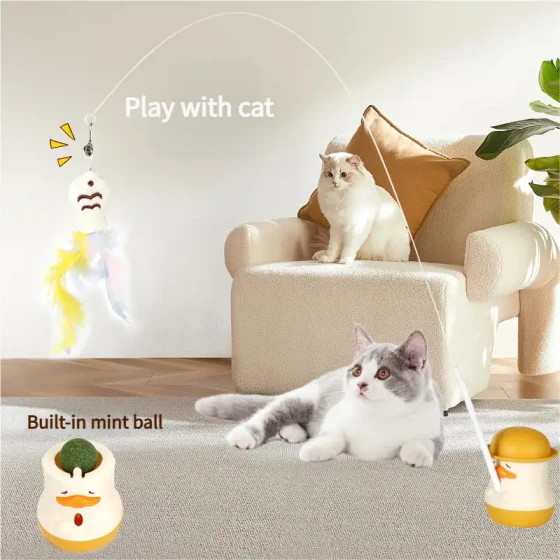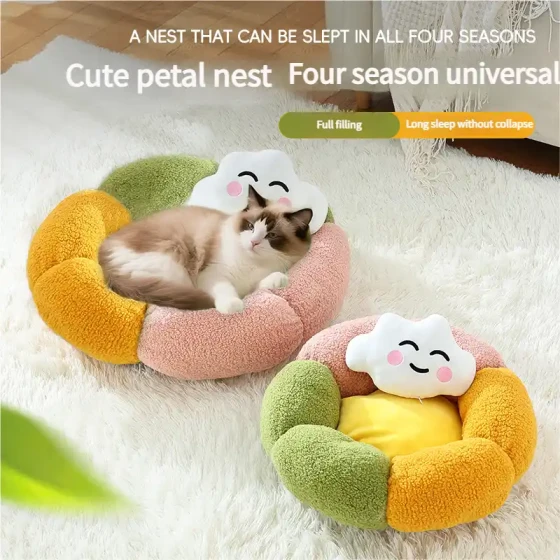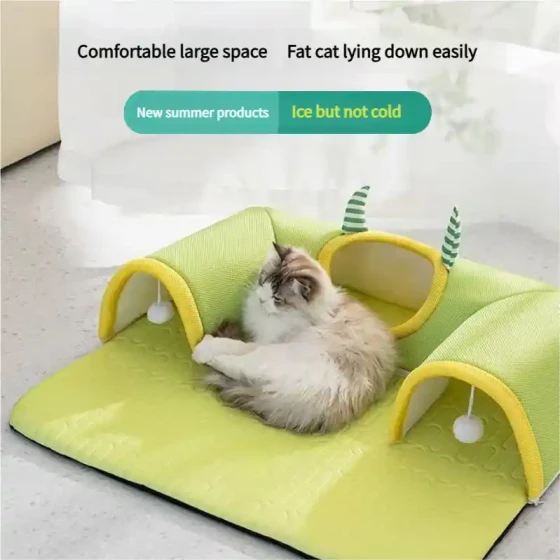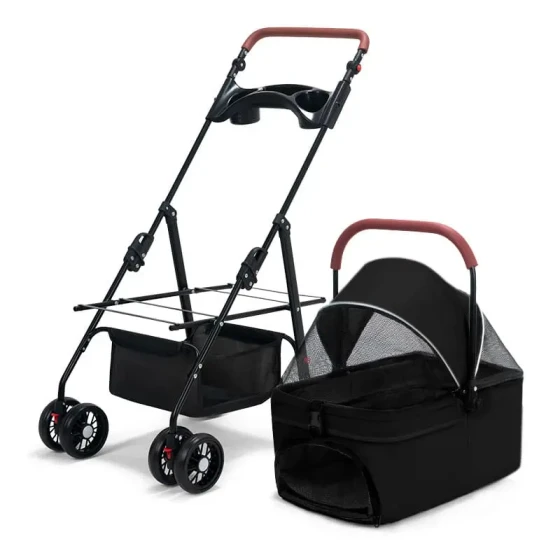20 Types of Food Stray Cats Can Eat_These Safe Foods Keep Stray Cats Healthy
Providing food to stray cats is a way many kind-hearted people can help. Although professional commercial cat food is the best choice for balanced nutrition for stray cats, in emergencies or as a supplement, some foods we commonly eat can be safely offered to them after proper preparation. These foods mainly include cooked lean meat, fish, eggs, small amounts of rice, and certain vegetables. Remember, the most important principle is: mild, cooked, no seasoning, deboned.
Stray cats face many challenges, with hunger, disease, and harsh weather threatening their survival. Providing safe and hygienic food within our capacity not only helps them temporarily escape hunger but also reduces health risks and environmental issues caused by rummaging through garbage. However, we must be clear that human food cannot fully replace all the nutrients cats need, and long-term or large amounts of human food may cause malnutrition or other health problems. Therefore, the safe foods listed here are more suitable as temporary or partial supplements; ideally, specialized cat food should be provided.
Here are some food types that can be safely fed to stray cats after proper preparation:
1. Quality Protein Sources (Indispensable)
Cats are obligate carnivores; protein is their main energy and physical function source. Providing cooked, high-quality animal protein is very important.
- Cooked chicken breast/thigh meat: This is one of the most recommended foods. Choose skinless, boneless, lean chicken, cook thoroughly without any salt, oil, or seasoning. Cut into small pieces or shred after cooking for easier eating. Chicken is rich in protein and usually easy to digest.
- Cooked lean beef: Also choose lean parts, cook fully without seasoning, cut into small pieces. Beef provides high-quality protein as well.
- Cooked turkey meat: Similar to chicken, it's a good protein source. Ensure it's cooked thoroughly and free of bones, skin, and seasoning.
- Cooked fish (small amounts): Such as salmon, tuna (choose water-packed, not oil-packed), mackerel, etc. Fully cook and remove all bones! Fish meat is rich in omega-3 fatty acids but should not be the main food. Long-term large amounts of fish may cause thiamine (vitamin B1) deficiency or mercury poisoning. Thus, fish should only be given occasionally and in small quantities.
- Cooked eggs: Can be boiled eggs or scrambled eggs cooked without oil or salt. Eggs are an excellent protein source and contain various vitamins and minerals.
Handling points: All meat and fish must be thoroughly cooked; no raw feeding! Raw meat may contain parasites and bacteria, raw fish may have thiaminase that destroys vitamin B1, and raw eggs may carry salmonella and affect biotin absorption. Be sure to remove all small bones and fish spines to prevent choking or injury.
2. Small Amounts of Carbohydrates and Fats (Energy Provision)
Cats have low carbohydrate needs, but small amounts of easily digestible carbohydrates can provide extra energy.
- Cooked white rice: Mild and easy to digest, can provide some carbohydrates. Feed in small amounts mixed with meat.
- Cooked brown rice: Contains more fiber than white rice but may be a bit harder for cats to digest. Also should be thoroughly cooked and given in small amounts.
- Cooked oatmeal: Unsweetened and unsalted pure oats cooked soft with water or salt-free meat broth. Provides energy and fiber.
Handling points: All grains must be fully cooked until soft for easy digestion. Avoid adding sugar, salt, milk, or any other seasoning.
3. Small Amounts of Vegetables (Supplement Vitamins and Fiber)
Some cooked vegetables can provide vitamins, minerals, and dietary fiber to aid digestion, but cats' ability to digest plants is limited, so only small amounts are suitable.
- Cooked pumpkin: Steamed or boiled then mashed. Pumpkin is rich in fiber and beneficial for cats’ digestion; sometimes used to ease constipation.
- Cooked carrots: Softened and cut into small pieces or mashed. Contains vitamin A, but cats poorly absorb vitamin A from plants.
- Cooked green peas/snap peas: Softened and given in small amounts. They contain some vitamins and fiber.
- Cooked sweet potato/yam: Cooked soft and mashed. Can provide energy and fiber but contains relatively high sugar, so should be fed sparingly.
Handling points: Vegetables must be thoroughly cooked soft without any seasoning. Cruciferous vegetables (like broccoli, cauliflower) can be given cooked and in small amounts but may cause gas.
4. Other Possible Supplements (Use With Caution)
- Unsalted meat broth/chicken broth: Can supplement hydration and provide small amounts of electrolytes. Must be completely free of salt, onions, garlic, and any other seasoning.
- Cooked chicken liver/beef liver (very small amounts): Liver is rich in vitamin A and iron, very nutritious. But excessive vitamin A can cause toxicity, so only very rarely and in tiny amounts (e.g., the size of a fingernail) should be given.
- Cat canned food (preferably recommended): If possible, buying specialized cat canned food is a better choice than homemade human food. Cat canned food is nutritionally balanced, high in moisture, and palatable. Choose simple ingredient lists prioritizing meat.
- Cat dry food (preferably recommended): Specialized dry cat food is the most convenient and economical way to feed stray cats. Provide complete, balanced nutrition dry food and ensure clean drinking water is available beside it.
- Cat treats (small amounts): Catnip, freeze-dried treats, and other cat-specific snacks can be given sparingly to attract or build trust but cannot replace the main diet.
- Water: Clean, fresh drinking water is essential for life! Always provide enough fresh water alongside food, especially in hot weather.
Combining the above, we can select or mix more than 20 different food forms or combinations, such as: shredded boiled chicken breast, cooked lean beef chunks, boiled salmon flakes, oil-free scrambled eggs, boiled egg pieces, chicken oatmeal porridge, chicken white rice, beef brown rice, pumpkin puree mixed with chicken, carrot and green pea mixed with beef, boiled sweet potato puree, small amounts of boiled chicken liver, unsalted chicken broth, water-packed tuna (small amount), various flavored cat canned foods, different brands of cat dry food, chicken freeze-dried treats, fish freeze-dried treats, catnip, fresh clean water.
Important notes and absolutely prohibited foods:
- Absolutely never feed! Onions, garlic (including all onion and garlic products like scallion pancakes, garlic powder), chocolate, grapes, raisins, alcohol, caffeine, xylitol, raw dough, nuts, milk and most dairy products (most cats are lactose intolerant), bones (cooked bones become brittle and can break causing digestive tract injury).
- Must be cooked thoroughly: All meat, fish, eggs, and most vegetables must be fully cooked.
- No seasoning: Absolutely no salt, sugar, oil, MSG, spices, or any human seasonings. Cats’ kidneys cannot metabolize excess salt, and spices may irritate their digestive system.
- Remove bones and spines: Carefully check and remove all bones and fish spines from food.
- Feed in appropriate amounts: Do not provide large amounts at once; leftover food can spoil, breed bacteria, and attract pests. Try to provide an amount cats can finish at one time or clean leftover food after a period.
- Provide water: Always provide a bowl of clean fresh water next to food.
- Safe location: Choose a safe, hidden place away from roads to put food, reducing risks of cats being hit by vehicles and avoiding disturbing residents.
- Responsible feeding: Long-term feeding of stray animals requires continuous commitment and responsibility. Contacting local animal protection organizations to promote TNR (Trap-Neuter-Return) programs is a more fundamental help and helps control stray animal populations.
Common Questions and Answers (FAQ)
- Q: Can I feed milk to stray cats?
- A: Better not. Most adult cats are lactose intolerant; milk may cause diarrhea, vomiting, and other digestive issues. Clean water is the best choice.
- Q: How often should I feed stray cats?
- A: Ideally, feed at fixed times and amounts daily if possible to help establish routine. But act according to your capacity. If not sustainable, occasionally providing safe food and water still helps.
- Q: Any tips for feeding location?
- A: Choose a relatively quiet, hidden, safe place, such as deep green areas inside residential communities or park corners, away from sidewalks, roads, and children's activity areas. Avoid disturbing others and protect cats.
- Q: Is dry food better or wet food (canned)?
- A: Both have advantages. Dry food is convenient, easy to store, relatively affordable, and helps clean teeth. Wet food contains more moisture, benefits urinary health, and is more palatable. Providing wet food with clean water is ideal. If feeding dry food only, ensure water is abundant.
Summary
Feeding stray cats is an act of kindness but must be done scientifically and responsibly. Without professional cat food, choosing cooked, mild, unseasoned lean meat, fish, eggs, small amounts of rice and some vegetables combined with clean water is relatively safe. Always avoid feeding cats toxic foods and try to provide balanced commercial cat food. Most importantly, promoting scientific stray animal management such as TNR according to local community conditions can more effectively improve stray cats’ living conditions.
